- Home
- Wilkie Collins
Hide and Seek Page 32
Hide and Seek Read online
Page 32
Mat listened to this answer attentively, but offered no further remark. He went into the back room, where the water was, and busied himself in washing up all the spare crockery of the bachelor household in honor of Mr. Blyth's expected visit.
In process of time, Zack—on whom literature of any kind, high or low, always acted more or less as a narcotic—grew drowsy over his newspaper, let his grog get cold, dropped his cigar out of his mouth, and fell fast asleep in his chair. When he woke up, shivering, his watch had stopped, the candle was burning down in the socket, the fire was out, and his fellow-lodger was not to be seen either in the front or the back room. Young Thorpe knew his friend's strange fancy for "going out over night (as Mat phrased it) to catch the morning the first thing in the fields" too well to be at all astonished at now finding himself alone. He moved away sleepily to bed, yawning out these words to himself:—"I shall see the old boy back again as usual to-morrow morning as soon as I wake."
When the morning came, this anticipation proved to be fallacious. The first objects that greeted Zack's eyes when he lazily awoke about eleven o'clock, were an arm and a letter, introduced cautiously through his partially opened bedroom door. Though by no means contemptible in regard to muscular development, this was not the hairy and herculean arm of Mat. It was only the arm of the servant of all work, who held the barbarian lodger in such salutary awe that she had never been known to venture her whole body into the forbidden region of his apartments since he had first inhabited them. Zack jumped out of bed and took the letter. It proved to be from Valentine, and summoned him to repair immediately to the painter's house to see Mrs. Thorpe, who earnestly desired to speak with him. His color changed as he read the few lines Mr. Blyth had written, and thought of the prospect of meeting his mother face to face for the first time since he had left his home. He hurried on his clothes, however, without a moment's delay, and went out directly—now walking at the top of his speed, now running, in his anxiety not to appear dilatory or careless in paying obedience to the summons that had just reached him.
On arriving at the painter's house, he was shown into one of the parlors on the ground floor; and there sat Mrs. Thorpe, with Mr. Blyth to keep her company. The meeting between mother and son was characteristic on both sides. Without giving Valentine time enough to get from his chair to the door—without waiting an instant to ascertain what sentiments towards him were expressed in Mrs. Thorpe's face—without paying the smallest attention to the damage he did to her cap and bonnet—Zack saluted his mother with the old shower of hearty kisses and the old boisterously affectionate hug of his nursery and schoolboy days. And she, poor woman, on her side, feebly faltered over her first words of reproof—then lost her voice altogether, pressed into his hand a little paper packet of money that she had brought for him, and wept on his breast without speaking another word. Thus it had been with them long ago, when she was yet a young woman and he but a boy—thus, even as it was now in the latter and the sadder time!
Mrs. Thorpe was long in regaining the self-possession which she had lost on seeing her son for the first time since his flight from home. Zack expressed his contrition over and over again, and many times reiterated his promise to follow the plan Mr. Blyth had proposed to him when they met at the turnpike, before his mother became calm enough to speak three words together without bursting into tears. When she at last recovered herself sufficiently to be able to address him with some composure, she did not speak, as he had expected, of his past delinquencies or of his future prospects, but of the lodging which he then inhabited, and of the stranger whom he had suffered to become his friend. Although Mat's gallant rescue of "Columbus" had warmly predisposed Valentine in his favor, the painter was too conscientious to soften facts on that account, when he told Zack's mother where her son was now living, and what sort of companion he had chosen to lodge with. Mrs. Thorpe was timid, and distrustful as all timid people are; and she now entreated him with nervous eagerness to begin his promised reform by leaving Kirk Street, and at once dropping his dangerous intimacy with the vagabond stranger who lived there.
Zack defended his friend to his mother, exactly as he had already defended him to Valentine—but without shaking her opinion, until he bethought himself of promising that in this matter, as in all others, he would be finally guided by the opinion of Mr. Blyth. The assurance so given, accompanied as it was by the announcement that Valentine was about to form his own judgment of Mr. Marksman by visiting the house in Kirk Street that very night, seemed to quiet and satisfy Mrs. Thorpe. Her last hopes for her son's future, now that she was forced to admit the sad necessity of conniving at his continued absence from home, rested one and all on Mr. Blyth alone.
This first difficulty smoothed over, Zack asked with no little apprehension and anxiety, whether his father's anger showed any symptoms of subsiding as yet. The question was an unfortunate one. Mrs. Thorpe's eyes began to fill with tears again, the moment she heard it. The news she had now to tell her son, in answering his inquiries, was of a very melancholy and a very hopeless kind.
The attack of palpitations in the heart which had seized Mr. Thorpe on the day of his son's flight from Baregrove Square, had been immediately and successfully relieved by the medical remedies employed; but it had been followed, within the last day or two, by a terrible depression of spirits, under which the patient seemed to have given way entirely, and for which the doctor was unable to suggest any speedy process of cure. Few in number at all times, Mr. Thorpe's words had now become fewer than ever. His usual energy appeared to be gone altogether. He still went through all the daily business of the religious Societies to which he belonged, in direct opposition to the doctor's advice; but he performed his duties mechanically, and without any apparent interest in the persons or events with which he was brought in contact. He had only referred to his son once in the last two days; and then it was not to talk of reclaiming him, not to ask where he had gone, but only to desire briefly and despairingly that his name might not be mentioned again.
So far as Zack's interests or apprehensions were now concerned, there was, consequently no fear of any new collision occurring between his father and himself. When Mrs. Thorpe had told her husband (after receiving Valentine's answer to her letter) that their runaway son was "in safe hands," Mr. Thorpe never asked, as she had feared he would, "What hands?" And again, when she hinted that it might be perhaps advisable to assist the lad to some small extent, as long as he kept in the right way, and suffered himself to be guided by the "safe hands" already mentioned, still Mr. Thorpe made no objections and no inquiries, but bowed his head, and told her to do as she pleased: at the same time whispering a few words to himself; which were not uttered loud enough for her to hear. She could only, therefore, repeat the sad truth that, since his energies had given way, all his former plans and all his customary opinions, in reference to his son, seemed to have undergone some disastrous and sudden alteration. It was only in consequence of this alteration, which appeared to render him as unfit to direct her how to act as to act himself; that she had ventured to undertake the responsibility of arranging the present interview with Zack, and of bringing him the small pecuniary assistance which Mr. Blyth had considered to be necessary in the present melancholy emergency.
The enumeration of all these particulars—interrupted, as it constantly was, by unavailing lamentations on one side and by useless self-reproaches on the other—occupied much more time than either mother or son had imagined. It was not till the clock in Mr. Blyth's hall struck, that Mrs. Thorpe discovered how much longer her absence from home had lasted than she had intended it should on leaving Baregrove Square. She rose directly, in great trepidation—took a hurried leave of Valentine, who was loitering about his front garden—sent the kindest messages she could think of to the ladies above stairs—and departed at once for home. Zack escorted her to the entrance of the square; and, on taking leave, showed the sincerity of his contrition in a very unexpected and desperate manner, by actually offering to ret
urn home then and there with his mother, if she wished it! Mrs. Thorpe's heart yearned to take him at his word, but she remembered the doctor's orders and the critical condition of her husband's health; and forced herself to confess to Zack that the favorable time for his return had not yet arrived. After this—with mutual promises to communicate again soon through Valentine—they parted very sadly, just at the entrance of Baregrove Square: Mrs. Thorpe hurrying nervously to her own door, Zack returning gloomily to Mr. Blyth's house.
Meanwhile, how had Mat been occupying himself, since he had left his young friend alone in the lodging in Kirk Street?
He had really gone out, as Zack had supposed, for one of those long night-walks of his, which usually took him well into the country before the first grey of daylight had spread far over the sky. On ordinary occasions, he only indulged in these oddly-timed pedestrian excursions because the restless habits engendered by his vagabond life, made him incapable of conforming to civilized hours by spending the earliest part of the morning, like other people, inactively in bed. On this particular occasion, however, he had gone out with something like a special purpose; for he had left Kirk Street, not so much for the sake of taking a walk, as for the sake of thinking clearly and at his ease. Mat's brain was never so fertile in expedients as when he was moving his limbs freely in the open air.
Hardly a chance word had dropped from Zack that night which had not either confirmed him in his resolution to possess himself of Valentine's Hair Bracelet, or helped to suggest to him the manner in which his determination to obtain it might be carried out. The first great necessity imposed on him by his present design, was to devise the means of secretly opening the painter's bureau; the second was to hit on some safe method—should no chance opportunity occur—of approaching it unobserved. Mat had remarked that Mr. Blyth wore the key of the bureau attached to his watch chain; and Mat had just heard from young Thorpe that Mr. Blyth was about to pay them a visit in Kirk Street. On the evening of that visit, therefore, the first of the two objects—the discovery of a means of secretly opening the bureau—might, in some way, be attained. How?
This was the problem which Mat set off to solve to his own perfect satisfaction, in the silence and loneliness of a long night's walk.
In what precise number of preliminary mental entanglements he involved himself; before arriving at the desired solution, it would not be very easy to say. As usual, his thoughts wandered every now and then from his subject in the most irregular manner; actually straying away, on one occasion as far as the New World itself; and unintelligibly occupying themselves with stories he had heard, and conversations he had held in various portions of that widely-extended sphere, with vagabond chance-comrades from all parts of civilized Europe. How his mind ever got back from these past times and foreign places to present difficulties and future considerations connected with the guest who was expected in Kirk Street, Mat himself would have been puzzled to tell. But it did eventually get back, nevertheless; and, what was still more to the purpose, it definitely and thoroughly worked out the intricate problem that had been set it to solve.
Not a whispered word of the plan he had now hit on dropped from Mat's lips, as, turning it this way and that in his thoughts, he walked briskly back to town in the first fresh tranquillity of the winter morning. Discreet as he was, however, either some slight practical hints of his present project must have oozed out through his actions when he got back to London; or his notion of the sort of hospitable preparation which ought to be made for the reception of Mr. Blyth, was more barbarously and extravagantly eccentric than all the rest of his notions put together.
Instead of going home at once, when he arrived at Kirk Street, he stopped at certain shops in the neighborhood to make some purchases which evidently had reference to the guest of the evening; for the first things he bought were two or three lemons and a pound of loaf sugar. So far his proceedings were no doubt intelligible enough; but they gradually became more and more incomprehensible when he began to walk up and down two or three streets, looking about him attentively, stopping at every locksmith's and ironmonger's shop that he passed, waiting to observe all the people who might happen to be inside them, and then deliberately walking on again. In this way he approached, in course of time, a very filthy little row of houses, with some very ill-looking male and female inhabitants visible in detached positions, staring out of windows or lingering about public-house doors.
Occupying the lower story of one of these houses was a small grimy shop, which, judging by the visible stock-in-trade, dealt on a much larger scale in iron and steel ware that was old and rusty, than in iron and steel ware that was new and bright. Before the counter no customer appeared; behind it there stood alone a squalid, bushy browed, hump-backed man, as dirty as the dirtiest bit of iron about him, sorting old nails. Mat, who had unintelligibly passed the doors of respectable ironmongers, now, as unintelligibly, entered this doubtful and dirty shop; and addressed himself to the unattractive stranger behind the counter. The conference in which the two immediately engaged was conducted in low tones, and evidently ended to the satisfaction of both; for the squalid shopman began to whistle a tune as he resumed his sorting of the nails, and Mat muttered to himself; "That's all right," as he came out on the pavement again.
His next proceeding—always supposing that it had reference to the reception of Mr. Blyth—was still more mysterious. He went into one of those grocer's shops which are dignified by the title of "Italian Warehouses," and bought a small lump of the very best refined wax! After making this extraordinary purchase, which he put into the pocket of his trousers, he next entered the public-house opposite his lodgings; and, in defiance of what Zack had told him about Valentine's temperate habits, bought and brought away with him, not only a fresh bottle of Brandy, but a bottle of old Jamaica Rum besides.
Young Thorpe had not returned from Mr. Blyth's when Mat entered the lodgings with these purchases. He put the bottles, the sugar, and the lemons in the cupboard—cast a satisfied look at the three clean tumblers and spoons already standing on the shelf—relaxed so far from his usual composure of aspect as to smile—lit the fire, and heaped plenty of coal on, to keep it alight—then sat down on his bearskins—wriggled himself comfortably into the corner, and threw his handkerchief over his face; chuckling gruffly for the first time since the past night, as he put his hand in his pockets, and so accidentally touched the lump of wax that lay in one of them.
"Now I'm all ready for the Painter-Man," growled Mat behind the handkerchief, as he quietly settled himself to go to sleep.
CHAPTER X. THE SQUAW'S MIXTURE.
Like the vast majority of those persons who are favored by Nature with, what is commonly termed, "a high flow of animal spirits," Zack was liable, at certain times and seasons, to fall from the heights of exhilaration to the depths of despair, without stopping for a moment, by the way, at any intermediate stages of moderate cheerfulness, pensive depression, or tearful gloom. After he had parted from his mother, he presented himself again at Mr. Blyth's house, in such a prostrate condition of mind, and talked of his delinquencies and their effect on his father's spirits, with such vehement bitterness of self-reproach, as quite amazed Valentine, and even alarmed him a little on the lad's account. The good-natured painter was no friend to contrite desperation of any kind, and no believer in repentance, which could not look hopefully forward to the future, as well as sorrowfully back at the past. So he laid down his brush, just as he was about to begin varnishing the "Golden Age;" and set himself to console Zack, by reminding him of all the credit and honor he might yet win, if he was regular in attending to his new studies—if he never flinched from work at the British Museum, and the private Drawing School to which he was immediately to be introduced—and if he ended as he well might end, in excusing to his father his determination to be an artist, by showing Mr. Thorpe a prize medal, won by the industry of his son's hand in the Schools of the Royal Academy.
A necessary characteristic of people who
se spirits are always running into extremes, is that they are generally able to pass from one change of mood to another with unusual facility. By the time Zack had exhausted Mr. Blyth's copious stores of consolation, had partaken of an excellent and plentiful hot lunch, and had passed an hour up stairs with the ladies, he predicted his own reformation just as confidently as he had predicted his own ruin about two hours before; and went away to Kirk Street, to see that his friend Mat was at home to receive Valentine that evening, stepping along as nimbly and swinging his stick as cheerfully, as if he had already vindicated himself to his father by winning every prize medal that the Royal Academy could bestow.
Seven o'clock had been fixed as the hour at which Mr. Blyth was to present himself at the lodgings in Kirk Street. He arrived punctual to the appointed time, dressed jauntily for the occasion in a short blue frock coat, famous among all his acquaintances for its smartness of cut and its fabulous old age. From what Zack had told him of Mat's lighter peculiarities of character, he anticipated a somewhat uncivilized reception from the elder of his two hosts; and when he got to Kirk Street, he certainly found that his expectations were, upon the whole, handsomely realized.

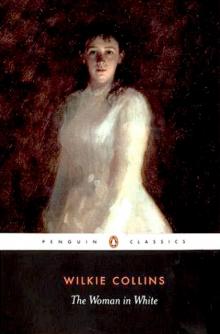 The Woman in White
The Woman in White The Queen of Hearts
The Queen of Hearts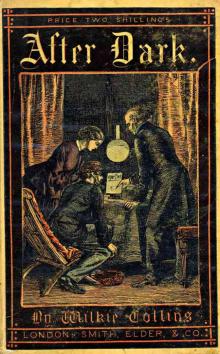 Miss Jeromette and the Clergyman
Miss Jeromette and the Clergyman Man and Wife
Man and Wife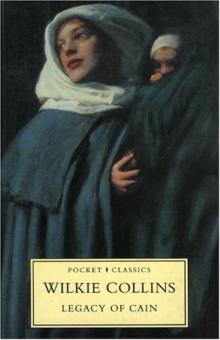 The Legacy of Cain
The Legacy of Cain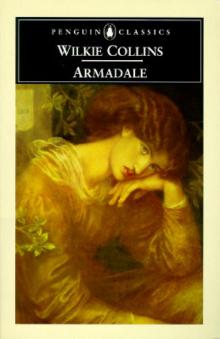 Armadale
Armadale The Frozen Deep
The Frozen Deep John Jago's Ghost or the Dead Alive
John Jago's Ghost or the Dead Alive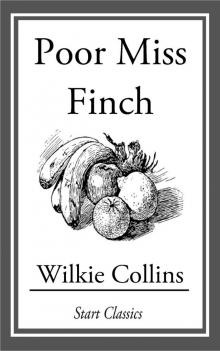 Poor Miss Finch
Poor Miss Finch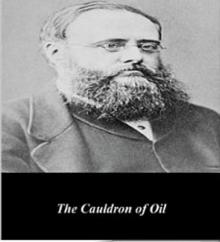 The Cauldron of Oil: A Case Worth Looking At
The Cauldron of Oil: A Case Worth Looking At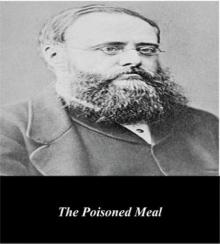 The Poisoned Meal
The Poisoned Meal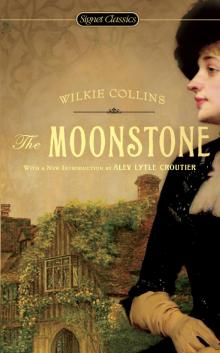 The Moonstone
The Moonstone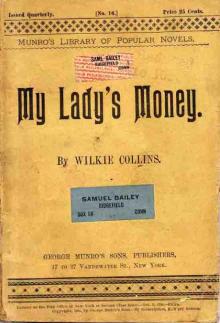 My Lady's Money
My Lady's Money Classic Ghost Stories
Classic Ghost Stories Jezebel's Daughter
Jezebel's Daughter The Devil's Spectacles
The Devil's Spectacles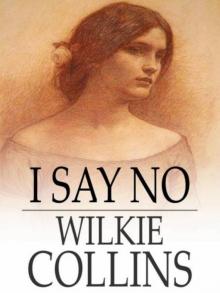 I Say No
I Say No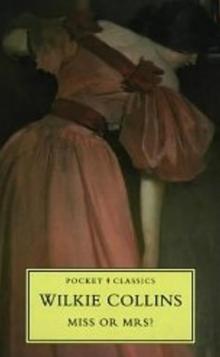 Miss or Mrs.?
Miss or Mrs.?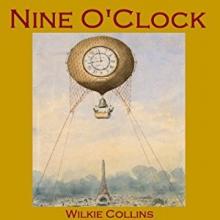 Nine O'Clock
Nine O'Clock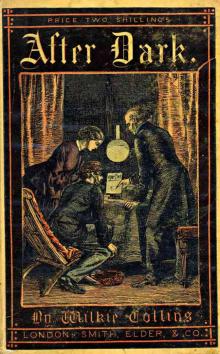 The Lawyer's Story of a Stolen Letter
The Lawyer's Story of a Stolen Letter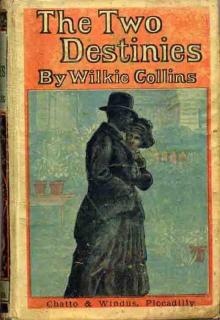 The Two Destinies
The Two Destinies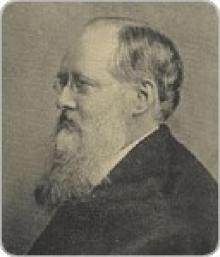 Mr. Percy and the Prophet
Mr. Percy and the Prophet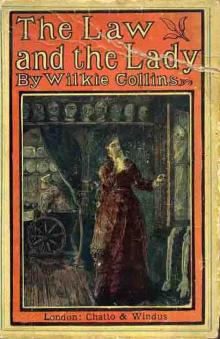 The Law and the Lady
The Law and the Lady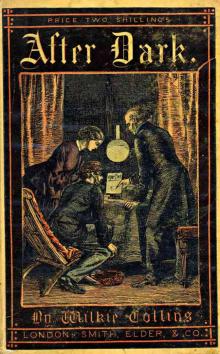 The Nun's Story of Gabriel's Marriage
The Nun's Story of Gabriel's Marriage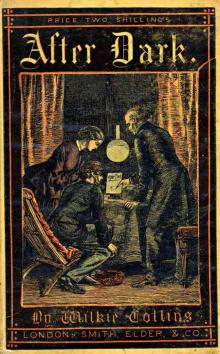 After Dark
After Dark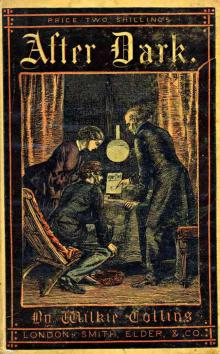 Mr. Captain and the Nymph
Mr. Captain and the Nymph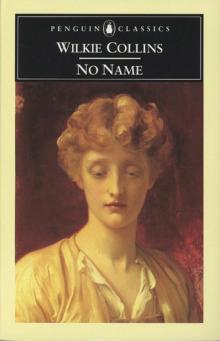 No Name
No Name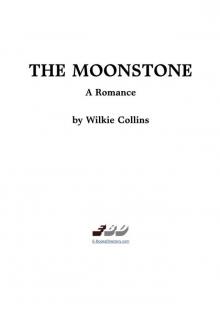 The Moonstone (Penguin Classics)
The Moonstone (Penguin Classics) Antonina
Antonina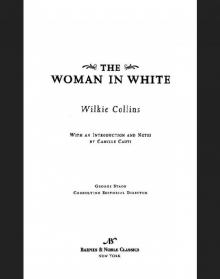 Woman in White (Barnes & Noble Classics Series)
Woman in White (Barnes & Noble Classics Series)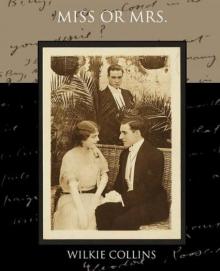 Miss or Mrs
Miss or Mrs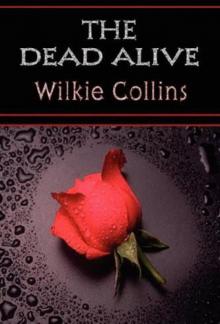 The Dead Alive
The Dead Alive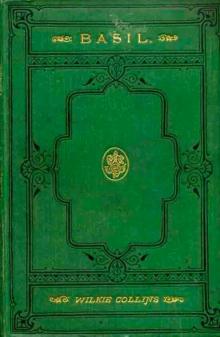 Basil
Basil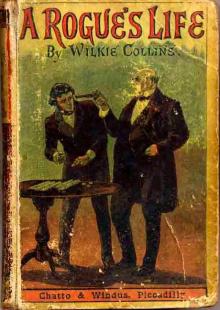 A Rogue's Life
A Rogue's Life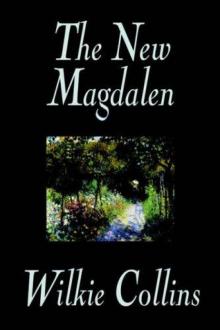 The New Magdalen
The New Magdalen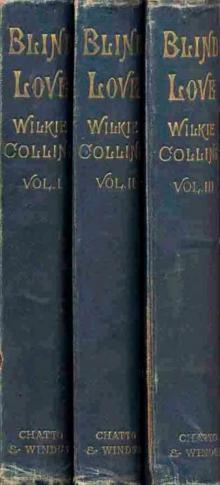 Blind Love
Blind Love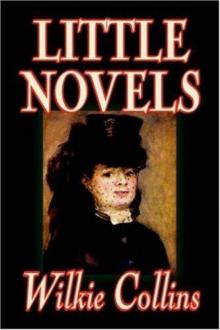 Little Novels
Little Novels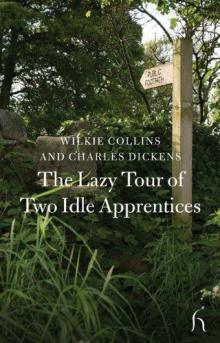 The Lazy Tour of Two Idle Apprentices
The Lazy Tour of Two Idle Apprentices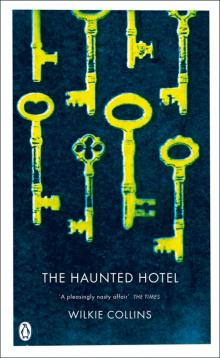 The Haunted Hotel
The Haunted Hotel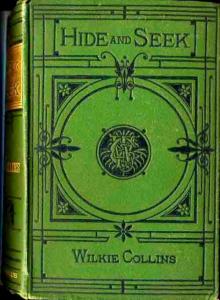 Hide and Seek
Hide and Seek